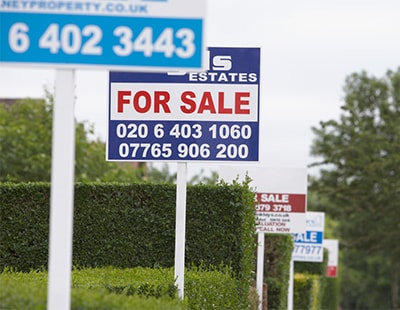[ad_1]

Data from property platform, Boomin, has uncovered that 73% of UK homeowners admit to having filled at least half of their home with clutter, which could cost them when they come to sell as half of homebuyers find it a deterrent during the viewings process.
Boomin asked UK homeowners how cluttered their homes had become and if more time spent at home during the pandemic had contributed to the issue.
How cluttered are UK homes?
The results show that 73% of UK homeowners are living in homes that have been considerably taken over by our clutter. A further 34% admitted to their home being half full, that’s 36.73 square metres of cluttered space equating to on average £135,354 in value per property in the current market.
According to the research, 27% of homeowners stated their home is at least three-quarters full meaning a huge 55 square metres of their property has been taken over equating to £203,031 in value per property, while one in 10 admitted to living in complete clutter.
Only 17% said their home was only a quarter full of clutter, with just one in ten living a clutter-free lifestyle.
Increased clutter due to pandemic purchases
For some homeowners, more time spent at home during the pandemic has led to a higher level of household clutter, with 25% admitting they had bought household or garden items during lockdown that they wouldn’t have otherwise.
Most common types of clutter
When it comes to the most common causes of clutter, homeowners are overfilling their homes with furniture, while clothing and kids toys also ranked high.
Work-related equipment and resources were also a big source of household clutter, most likely attributed to the pandemic and work from home guidance. Other types of clutter that were in the ranking were tech, pet-related items, gym equipment and artwork.
How much clutter could cost sellers
However, too much clutter could cost sellers when it comes to selling their homes. Boomin also discovered 51% of buyers would be deterred from buying a home filled with a large level of clutter.
Michael Bruce, chief executive officer and founder of Boomin, says: “As a nation, we tend to consume far more than we need and even a harmless trip to IKEA for bedsheets can turn into a spending spree on other non-essential household items.”
“This consumer behaviour has only intensified during the pandemic as months on end during lockdown saw us spend less on our social lives and more on things to help us pass the time. The result of which is that many of us now have even more clutter clogging up our homes than ever before.”
Bruce concluded: “However, a cluttered home can be detrimental, especially if you’re looking to sell. Many homebuyers may be put off by a large level of clutter when viewing your home, so it could help to fast track your spring clean if you are listing your home for sale.”
|
Thinking about everything in your home, including items like furniture, how cluttered is your home?
|
|||
|
Answer
|
Respondents
|
Cluttered property space (Sq m)
|
Value of cluttered property space @ £3,653 per sq m.
|
|
Somewhat – 50% full
|
34%
|
36.73
|
£135,354
|
|
Very – 75% full
|
27%
|
55.09
|
£203,031
|
|
Partially – 25% full
|
17%
|
18.36
|
£67,677
|
|
Completely – 100% full
|
11%
|
73.45
|
£270,708
|
|
Not at all – 0%
|
10%
|
N/A
|
N/A
|
|
What clutter is most clogging up your home? (Tick all that apply)
|
|
|
Answer
|
Respondents
|
|
Furniture
|
1st
|
|
Clothing
|
2nd
|
|
Kids toys
|
3rd
|
|
Work equipment/resources
|
4th
|
|
Tech such as TVs, speakers etc
|
5th
|
|
Pet stuff – beds, cages etc
|
6th
|
|
Gym or fitness equipment
|
7th
|
|
Artwork
|
8th
|
|
Did you purchase household or garden items during lockdown that you may otherwise have refrained from buying?
|
|
|
Answer
|
Respondents
|
|
Yes
|
25%
|
|
No
|
75%
|
|
When looking to buy a house, would a large level of clutter deter you from buying?
|
|
|
Answer
|
Respondents
|
|
Yes
|
51%
|
|
No
|
49%
|
[ad_2]
Source link



